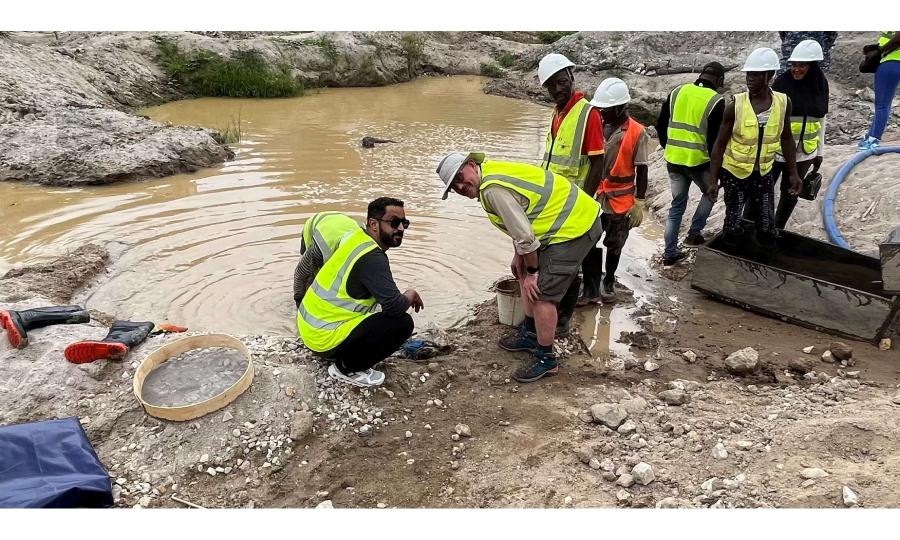Ahmed Bin Sulayem, Chair of the Kimberley Process (KP), led a delegation from the UAE to the West African countries of Sierra Leone and Ghana in March to evaluate the local implementation of Kimberley Process procedures and gain insights into best practices applied in the two countries. This marked the first visit to both nations by an acting KP Chair.
This visit followed an earlier trip to the Central African Republic (CAR), aimed at expediting the review process by the KP’s Working Group of Monitoring and initiating efforts to reinstate the country’s diamond trade, which had been partially restricted due to unrest.
During the five-day visit to Sierra Leone and Ghana, Bin Sulayem engaged in discussions with government officials, industry representatives, and artisanal miners across the countries, including with Mohamed Juldeh Jalloh, Vice President, Sierra Leone.
The UAE delegation visited significant diamond exploration sites, including the underground Meya mine, artisanal mines, and Gemfair – a De Beers-initiated pilot programme providing a secure and transparent route to market for ethically-sourced ASM diamonds from Sierra Leone. This initiative is underpinned by a tailored digital traceability solution.
Additionally, meetings were held with Ghana’s Ministry of Lands and Natural Resources, led by Honourable George Mireku Duker, Deputy Minister, and PMMC (Precious Minerals Marketing Company Limited), which serves as the country’s KP focal point.
Ahmed Bin Sulayem, Chair of the Kimberley Process, remarked: “Both Sierra Leone and Ghana are exemplary members of the Kimberley Process, actively participating across several of its work streams. These countries have been exceptionally successful in leveraging the KP to curb smuggling, with robust internal controls and mechanisms that set the standard. In this year of delivery for the Kimberley Process, and the industry facing challenging geopolitical overreach, it’s crucial that we listen and learn from each other as we collectively shape the next generation, including a more digital version of the Kimberley Process.”

